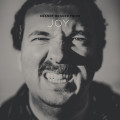Contact
- US press: Anton Hochheim at Force Field PR [email: anton@forcefieldpr.com]
Bio
Joy is one of the fundamental emotions of dance music. Having its earliest roots in underground dance scenes among racial and sexual minorities, dance music focuses on joy as a means of everyday survival. But what does joy sound like? Certainly, dancefloor culture has accumulated a vocabulary of sonic clichés that represent joyous feeling—but are we limited to them? With their fourth studio album, Joy, Brandt Brauer Frick push beyond these clichés to provide their own take on joy.
Daniel Brandt, Jan Brauer, and Paul Frick have established themselves as an ensemble of classically-trained instrumentalists who make techno. Since 2008, this Berlin-based trio has been exploring dance music production using unorthodox combinations of instruments and compositional methods. They also have an illustrious career as live performers, playing a wide range of venues from festival to club to concert hall: Glastonbury, Coachella, Montreux Jazz, Lincoln Center, Mutek, Sonar, Southbank, Centre Pompidou, Fabric, Berghain, the Kölner Philharmonie, and many more. The genius of Brandt Brauer Frick lies in their ability to find ways to make almost any assemblage of instruments work and ‘werk’ as dance music. Their debut album, You Make Me Real (2010), was a compendium of compelling minimalist techno tracks made with acoustic instruments. Their sophomore album, Mr. Machine (2011), came out as a live album recorded with a ten-piece classical ensemble. With Miami (2013), they began to move away from the austerity of their first two albums and to strike out in a new direction towards something darker, funkier, and structurally complex. Through their previous releases and their early stage performances in formal suits, Brandt Brauer Frick gave the impression of a classical ‘new music’ ensemble making techno; but with Joy, they more closely resemble an experimental rock band.
If their previous album, Miami, tarried with darker moods and atmospheres, with Joy Brandt Brauer Frick explore a wider range of feelings, expressing euphoria through different intensities, textures, and forms. In keeping with this refusal of convention, they draw upon genres and styles that are not conventionally associated with joy: ‘krautrock’, punk, drum’n’bass, indie rock, new wave, and pretty much every other ‘-wave’ there was in the 80s. Lyrically, the album focuses on what the band-members describe as ‘post-religious’ themes—such as struggling to find joy in times of uncertainty and instability. To describe this album as Brandt Brauer Frick’s ‘Nietzsche album’ is hardly hyperbole.
With Canadian singer-poet Beaver Sheppard lending his voice, this album could also be dubbed Brandt Brauer Frick’s first vocalist-focused, song-centric album. Although their previous album, Miami, featured guest appearances by vocalists such as Gudrun Gut, Jamie Lidell, and Nina Kraviz on some of its tracks, Joy represents the ensemble’s first experience composing and recording a whole album with a vocalist. This collaborative project required a different compositional process: one that was less centralized and more dynamic. Rather than starting from instrumental ‘bed’ tracks upon which guest vocalists would record their contribution, the compositional process began with Beaver’s fragmentary lyrics and vocal lines. Brandt Brauer Frick would then begin to develop instrumental layers, and then the rough cuts would be traded back and forth between band and vocalist, often going through numerous revisions. According to the band members, the process was very intense, but also very productive.
Brandt Brauer Frick explore new sonic terrain in other ways, too. In their previous albums, they sought to undo some of dance music’s expectations of form—intros, buildups, breakdowns, and so on. In Joy, the trio doesn’t shy away from euphoric climaxes, but they come in surprising shapes and textures; there is much more grit and growl to this album than their previous releases. The signature BBF battery of acoustic instruments is still present on this album, but there is a particular emphasis on strings, brass, and complex drum patterns.
This album is also stylistically diverse, each track offering a contrasting combination of styles and genres. The opening track, ‘You Can Buy My Love’, has the shape of a sad pop song, but it’s filled out with Beaver’s brooding vocals slowly intensifying and unfurling against a backdrop of off-kilter breakbeats. This is followed by ‘City Chicken’, a slow-burning, contemplative song with looped guitar patterns reminiscent of Steve Reich’s Electric Counterpoint punctuated by intermittent jazz horn riffs. Beaver’s half-spoken lyrics, in the meanwhile, are framed by harmonized backing vocals filtered through metallic-sounding reverb. ‘Poor Magic’, with its clipped and syncopated synth chords and almost-whispered vocals, has echoes of The Postal Service’s flavour of indie-pop and SBTRKT’s post-dubstep ballads. But these yearning vocals and keyboards glide elegantly over frenetic, clattering drum’n’bass breakbeats. The album’s eighth track, ‘Oblivious’, sounds like a funked-up EBM (electronic body music) track, with its resonant, throbbing drum riffs, stuttering acid-y synth lines, and fragmentary shout-chant vocals. But Brandt Brauer Frick manage to incorporate strings into this texture, playing dissonant tone clusters à la Psycho or Stravinsky. The final song, ‘Away From My Body’, is arguably the album’s most dancefloor-oriented track. It features rolling breakbeats, rhythmic chanting, syncopated horn stabs, seesawing string chords—all of which culminates in a trippy climax of echoing voices resounding drums.
Brandt Brauer Frick brings you Joy, but also surprises. They succeed in devoting a whole album to a single feeling without making it either monotone or clichéd. Instead, they expand and enrich electronic music’s emotional range with new textures.
Current Release
Brant Brauer Frick
Joy
[Because Music]
Street date: October 28, 2016
Pics (click for high res)
Photo Credit: Max Parovsky



